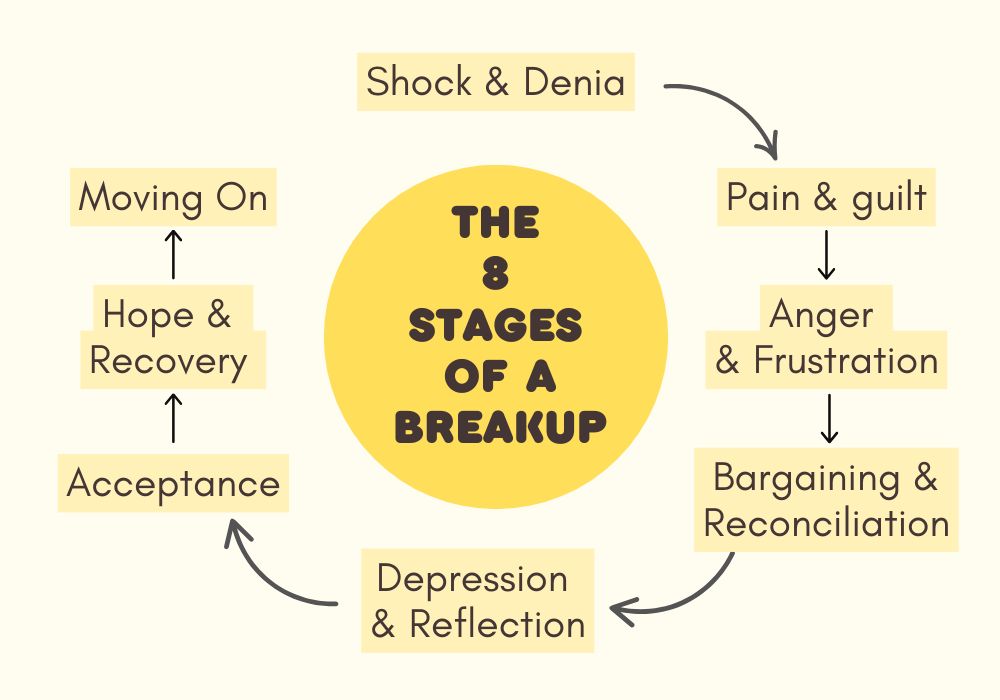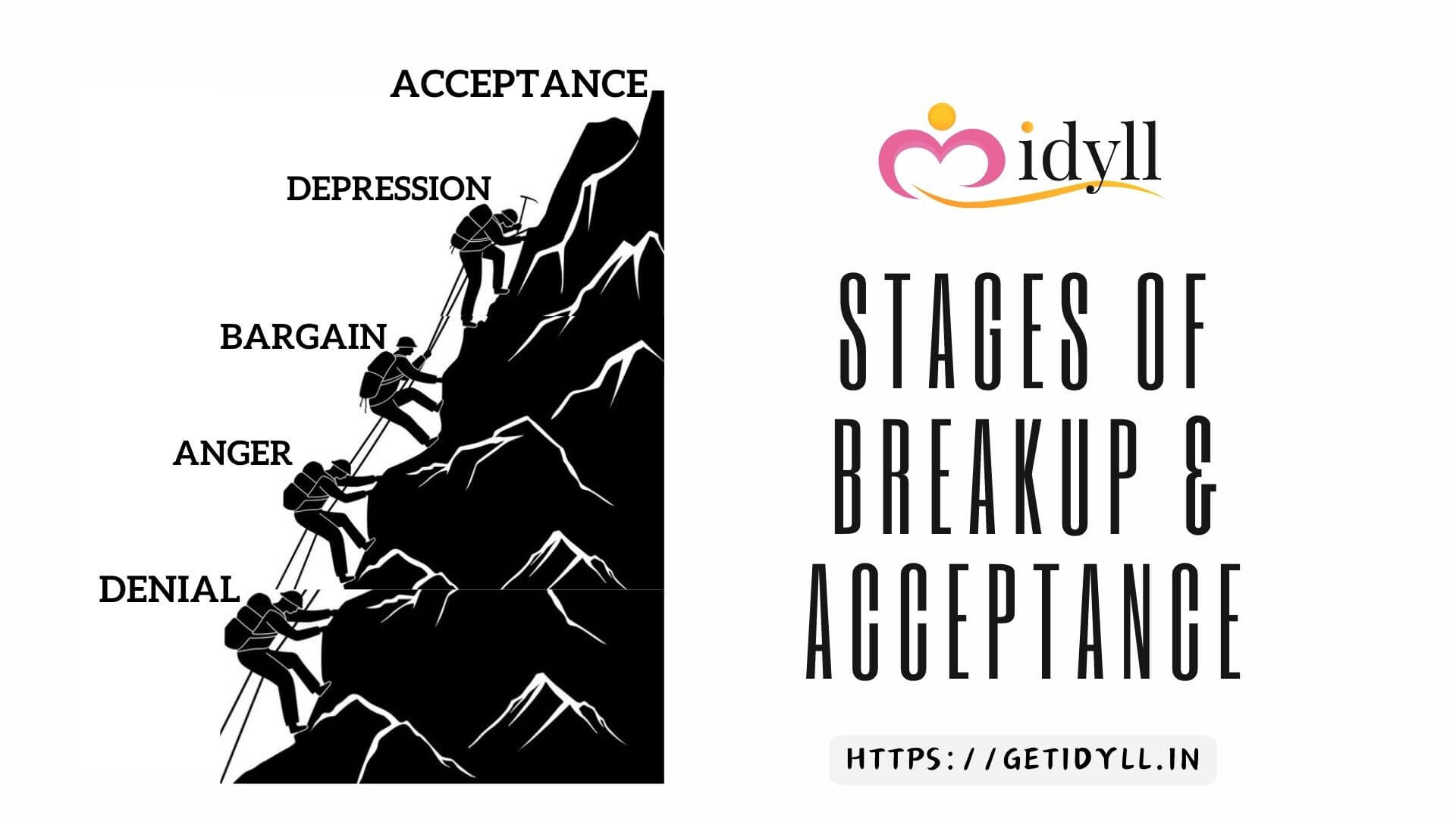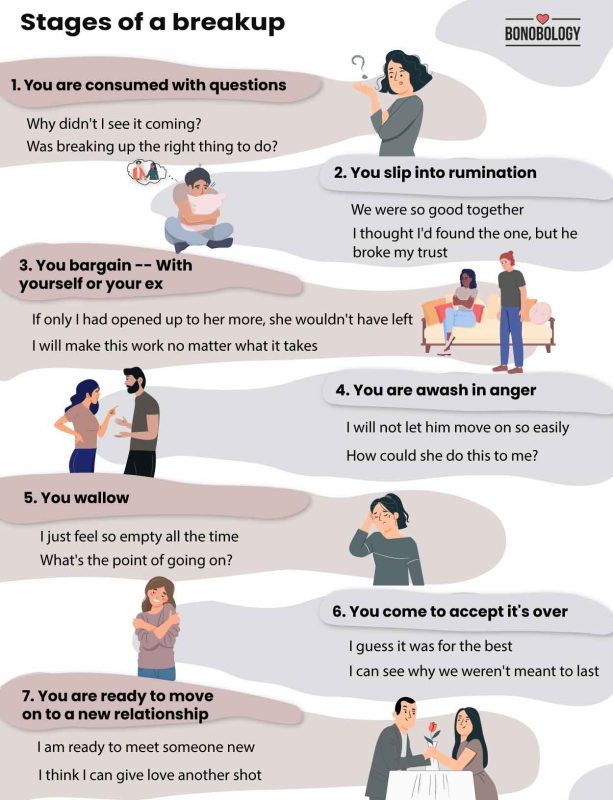
Understanding the Emotions After a Breakup
When a relationship comes to an end, it can feel as though a part of oneself is lost. As individuals navigate through the choppy waters of post-breakup emotions, understanding and processing these feelings is essential for healing.
Dealing with grief and sadness
Grief isn’t just reserved for loss in death; it can permeate the end of a relationship as well. It’s common to feel an overwhelming sense of sadness about the future that will never be, along with memories of happier times.
- Personal Anecdote: One individual might find themselves tearing up watching their favorite movie they used to enjoy with their ex, triggering feelings of longing for happier days.
To cope with this emotional weight, consider:
- Journaling thoughts and feelings.
- Talking to a trusted friend or therapist.
- Allowing yourself to cry when emotions hit.
Coping with anger and resentment
Anger can also bubble to the surface, manifesting as resentment towards an ex-partner or even oneself for the perceived failures of the relationship.
- Examples of feelings might include:
- Annoyance at how the breakup was handled.
- Regrets over unresolved issues.
Channel this anger into constructive actions:
- Engage in physical activities or sports.
- Utilize art or other creative outlets.
Acceptance and forgiveness
Ultimately, moving through grief and anger leads to acceptance. This stage involves recognizing that the relationship is in the past and allowing oneself to forgive, which can be liberating.
- Forgiveness doesn’t imply condoning any wrongs but rather freeing yourself from the emotional burden.
Steps toward acceptance can include:
- Practicing gratitude for the lessons learned.
- Setting intentions for personal growth.
Navigating the emotional aftershocks of a breakup can be challenging, but embracing these feelings is a crucial step towards healing and personal growth.

Detaching Yourself from the Past Relationship
Having navigated the tumultuous emotions following a breakup, the next step is to focus on detaching from the past relationship. This process is crucial for healing and moving forward.
Reflecting on the relationship
Before fully letting go, it’s important to reflect on what the relationship taught you. Taking time to think about the good and the bad leads to deeper understanding and personal growth.
- Personal Reflection Prompts:
- What were the best moments?
- What patterns emerged that need addressing in future relationships?
Documenting these reflections in a journal can be incredibly freeing, opening the door to self-discovery and clarity.
Letting go of memories and keepsakes
Once you’ve reflected, consider the items that physically tie you to the past. Holding onto mementos like photos, gifts, or shared belongings can hinder your process.
- To move on, try these actions:
- Create a “goodbye” box to store keepsakes you’re not ready to part with.
- Gradually remove items from your space that may trigger memories.
Allowing yourself to truly let go can enhance your emotional well-being.
Setting boundaries with your ex
An essential part of detaching involves establishing boundaries with your ex. This can be difficult but necessary for healing.
- Suggestions for setting boundaries:
- Limit or pause communication for some time.
- Clearly state your needs and respect their privacy.
By setting these boundaries, you pave the way for self-reflection and a healthier future, free from past entanglements. Embracing these steps facilitates a smoother transition towards a fulfilling life ahead.

Rebuilding Self-Identity and Confidence
After separating from the past relationship and setting necessary boundaries, the path to rebuilding one’s self-identity and confidence begins. This phase is all about rediscovering who you are outside of the relationship.
Rediscovering personal interests and passions
A breakup often leads individuals to lose sight of their own interests, as these were often intertwined with their partner’s. Now is the time to explore activities and hobbies that ignite your passion.
- Consider trying out:
- Painting or drawing to express creativity.
- Joining a class or workshop to learn something new, like cooking or dancing.
- Reconnecting with old hobbies that you may have sidelined.
Engaging in these activities can reignite joy and provide a sense of accomplishment.
Self-care and self-love practices
Self-care is vital during this transformative period. It’s essential to prioritize your well-being and practice self-love daily.
- Self-care ideas include:
- Creating a relaxing morning routine.
- Treating yourself to a spa day or a favorite meal.
- Practicing mindfulness through meditation or yoga.
These practices help reinforce a positive self-image and improve overall mental health.
Surrounding yourself with support
Lastly, don’t underestimate the power of a supportive social circle. Friends and family can provide encouragement, love, and a sense of belonging during this time.
- Ways to cultivate support:
- Schedule regular catch-ups with good friends.
- Join support groups or online communities.
- Attend social events or meetups to make new friends.
Having a solid support system not only helps combat loneliness but also contributes to rebuilding self-confidence and a renewed sense of self. Embracing these steps prepares you for the exciting journey ahead, filled with new possibilities and self-discovery.

Opening Up to New Relationships
Having embraced self-discovery and fortified personal connections, the time may come to consider opening up to new relationships. This exciting yet vulnerable phase can lead to profound joy, but it’s crucial to navigate it thoughtfully.
Knowing when you’re ready to date again
Recognizing the right moment to re-enter the dating world is essential. Ask yourself questions that can guide your readiness:
- Do you feel emotionally healed from your past relationship?
- Are you excited about the prospect of dating rather than feeling pressured?
- Have you spent time understanding what you want in a partner?
If the answers lean positively, you might be prepared to take that leap.
Building trust in new relationships
Once you begin dating again, fostering trust is paramount. This involves open communication and transparency with potential partners.
- Tips for building trust:
- Share your feelings and boundaries early on.
- Practice active listening to show you value your partner’s thoughts.
- Take your time; allow trust to develop gradually through shared experiences.
Creating a foundation of trust encourages a deeper emotional connection.
Avoiding rebound relationships and comparing
Lastly, it’s vital to be cautious about entering rebound relationships. Failing to address past wounds can lead to repeating negative patterns.
- Strategies to avoid rebounds:
- Ensure you have resolved feelings toward your ex before dating again.
- Focus on the unique qualities of your new partner rather than comparing them to your past.
Embracing this new chapter can lead to fulfilling and enriching relationships. By taking measured steps, you not only honor your journey but also open the door to exciting new beginnings filled with potential and happiness.

Moving Forward and Creating a Fulfilling Life
Having successfully navigated the waters of new relationships, it’s time to focus on moving forward and creating a fulfilling life. This phase is about crafting a future that resonates with your newfound self and aspirations.
Setting new goals and aspirations
Reestablishing your goals gives direction to your life. Reflect on what you want to achieve both personally and professionally.
- Consider setting goals such as:
- Pursuing further education or a new career path.
- Traveling to places you’ve always wanted to visit.
- Committing to a fitness routine or a hobby that excites you.
Writing these goals down can act as a powerful motivator and help you track your progress.
Embracing change and growth
Change often comes hand-in-hand with growth. Embracing it means welcoming new experiences and adapting to transitions without fear.
- Strategies to embrace change include:
- Staying curious and open to learning.
- Seeking new experiences, whether that’s trying new foods or meeting new people.
- Practicing resilience; remember that setbacks are a natural part of growth.
These practices enhance your adaptability and enrich your life experiences.
Finding happiness and contentment on your own
As you move forward, cultivating happiness and contentment independently is crucial. It fosters a sense of self-reliance and inner peace.
- Ways to find happiness on your own:
- Engage in activities that spark joy and fulfillment.
- Establish a gratitude practice to recognize the positives in your life.
- Spend time in nature or pursue mindfulness through meditation.
Ultimately, creating a fulfilling life is about embracing who you are and the potential that lies ahead. With newfound clarity and purpose, you can look forward to an exciting journey filled with personal growth, happiness, and meaningful connections.
